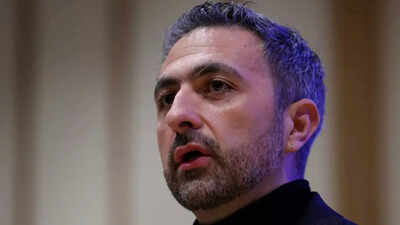ARTICLE AD BOX

Microsoft’s AI CEO Mustafa Suleyman has revealed that a previous agreement with OpenAI has effectively prevented the tech giant from developing its own artificial intelligence (AGI) models.
This restriction has only been lifted recently. Speaking in an interview with Business Insider, Suleyman disclosed that Microsoft’s partnership with OpenAI included an important clause which barred Microsoft from independently pursuing AGI until 2030. Suleyman said that this limitation kept Microsoft from building its own frontier models and forced it to focus on smaller-scale AI efforts and post-training OpenAI’s models for specific applications.
“Microsoft needs to be self-sufficient in AI,” Suleyman said. “And to do that, we have to train frontier models of all scales with our own data and compute at the state-of-the-art level.”
New deal and new direction
As per the report by Business Insider, the partnership between Microsoft and OpenAI has since been renegotiated, granting Microsoft the freedom to pursue AGI independently or with third-party collaborators. This shift has catalysed the formation of a new internal division: Microsoft AI Superintelligence.
The team’s mission is to build a “world-class, frontier-grade research capability” and tackle fundamental challenges in AI, such as transfer learning and continual learning — key steps toward developing systems that can teach and evolve like humans.
From constraint to competition
Suleyman’s comments mark a significant departure from Microsoft’s previous strategy, which largely revolved around supporting OpenAI’s GPT models with cloud infrastructure and capital.
Now, Microsoft is entering direct competition with OpenAI, as well as other AI leaders like Google, Meta, Anthropic, and xAI.Despite this, Suleyman emphasised a pragmatic approach to model development, saying Microsoft will remain open to using open-source models, Anthropic’s Claude, OpenAI’s GPT, and its own MAI models — whatever best serves its products and customers.“There’s no reason for us to be religious about that,” he said.
“We’re very focused on getting our products working.”
Infrastructure and Safety at the Core
To support its ambitions, Microsoft is investing heavily in AI infrastructure, including custom chip development and expanded partnerships with Nvidia. Suleyman also confirmed plans for a massive AI chip cluster to reduce reliance on third-party hardware and boost Azure’s performance.The company is also prioritising AI safety and governance, appointing former DeepMind and Google legal executive Trevor Callaghan as VP of Responsible AI.
Suleyman stressed that Microsoft aims to be “the adult in the room” as the AI race intensifies.“There’s a risk with these systems that they get extremely smart and run away from us,” he warned. “That requires a humanist intent, which keeps humans at the top of the food chain.”
A pivotal moment for Microsoft
With $300 billion in annual revenue and a vast product ecosystem, Microsoft sees this as a defining moment. Suleyman envisions AI agents embedded across all Microsoft products, transforming workflows and reducing the cost of living for billions over the next decade.“We have the data, we also have the distribution, and we have the user interface,” he said. “So I think it’s just a matter of time before these things become really, really magical.”The revelation underscores a new era for Microsoft — one where it’s no longer just a partner in AI innovation, but a full-fledged competitor in the race to build the future of intelligence.

 1 hour ago
3
1 hour ago
3








 English (US) ·
English (US) ·